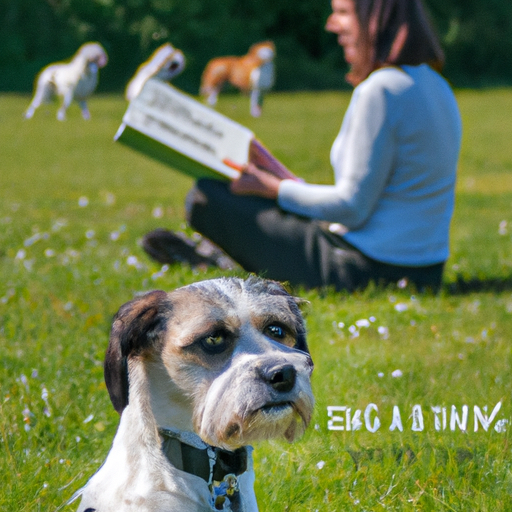Barking is a normal part of canine communication, but if your dog constantly barks at other dogs, it can become a nuisance and could indicate deeper issues. As a caregiver to your furry friend, there are a number of steps you can take to mitigate this behavior.
Understanding Why Dogs Bark at Other Dogs
To properly address the issue, it’s essential to understand why your dog barks at other dogs. Dogs might bark for several reasons:
- Territorialism
- Fear or anxiety
- Excitement or playfulness
- Seeking attention
Understanding the root cause of your dog’s barking can inform your strategy for managing it.
Training Your Dog to Stop Barking
Training your dog to stop barking at other dogs can be a challenging task, but with consistent work, and the right techniques, you can help your dog keep its cool around other canines.
1. Positive Reinforcement
Reward your dog for calm behavior. Reward can come in the form of treats, praise, or playtime. The key is consistency. Always reward good behavior immediately to reinforce the positive action.
2. Distraction
Interrupt your dog’s barking with a distraction like a toy or a command your dog knows well, such as “sit” or “stay”.
3. Desensitization
Gradually expose your dog to other dogs at a distance. Over time, decrease the distance while maintaining your dog’s calm behavior.
Creating a Calm Environment
A calm surrounding can significantly reduce your dog’s tendency to bark at other dogs. Here are some things you can do:
- Keep your dog’s environment as calm and quiet as possible.
- Use white noise or calming music to mask outside sounds.
- Make sure your dog has plenty of mental and physical stimulation so it doesn’t get bored and start barking.
Using Professional Help
If you’re struggling with your dog’s barking, consider seeking the help of a professional dog trainer or behaviourist. They can provide personalized advice and strategies based on your dog’s specific needs and behaviors.
| Type of Professional | Description | When to Consider |
|---|---|---|
| Dog Trainer | Teaches basic obedience and specific skills | If your dog knows basic commands but still struggles with barking |
| Behaviourist | Addresses underlying behavioral issues | If your dog’s barking is caused by anxiety or aggression |
Medication and Devices
In extreme cases, your vet may suggest medication to help manage your dog’s excessive barking. Additionally, there are devices such as anti-barking collars that deliver a mild shock or spray citronella when your dog barks.
Note: Always consult with a vet before starting any medication or using a corrective device.
The Importance of Patience
Remember, changing a dog’s behavior takes time. Be patient with your dog and celebrate the small victories. Each moment of calm around other dogs is a step in the right direction.
Frequently Asked Questions
Why does my dog bark at other dogs on walks?
Dog barking can intensify on walks due to increased excitement and the presence of many stimuli. Using the training techniques mentioned, you can help your dog stay calm during walks.
How long will it take for my dog to stop barking at other dogs?
There’s no set timeline for behavior modification in dogs. It can take weeks to months of consistent training. Patience and consistency are key.
Can I get my older dog to stop barking at other dogs?
Yes, although it may take longer to teach an older dog new habits, it’s certainly possible. Use the same training techniques, but expect to spend a bit more time on them.
Should I punish my dog for barking at other dogs?
No, punishment can actually increase anxiety and make the problem worse. Instead, focus on positive reinforcement of calm behavior.
Conclusion
Reducing your dog’s barking at other dogs is a journey, not a destination. With patience, consistency, and the right strategies, you can help your dog learn to stay calm around other canines. Remember, every dog is unique, and what works for one may not work for another. Don’t be afraid to seek professional help if needed. You’re not alone in this journey, and the rewards of a calm, happy dog are well worth the effort.



